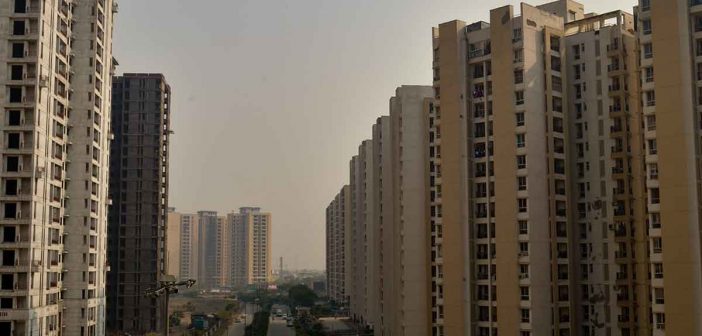Private equity (PE) funding for Indian real estate ventures has dipped significantly, marking a shift from the sector’s previous boom years. This analysis explores the reasons behind this decline and its potential implications.
The Funding Shortfall
Reports indicate a 16% year-on-year decline in PE funding for real estate in FY24, translating to a drop from USD 4.36 billion to USD 3.67 billion. This follows a broader slowdown in PE-VC investments across India, which fell by 38% in 2023 compared to the previous year.
Reasons for the Downturn
Several factors are contributing to the decrease in PE real estate funding:
- Global Uncertainty: Geopolitical tensions and rising interest rates worldwide have made investors cautious. They are prioritizing stability and seeking less risky ventures.
- High Base Effect: The residential sector witnessed a surge in PE investments in FY23. This year’s decline might be a correction to that exceptional growth.
- Office Market Flux: The work-from-home trend continues to disrupt the office space market. Investors are wary until the long-term demand for office space becomes clearer.
Investment Trends Amidst the Dip
Despite the overall decline, some interesting trends are emerging:
- Equity Over Debt: Investors are favoring equity deals over debt financing, seeking a larger share in potential profits.
- Office Still Dominant: The office segment continues to attract the majority of PE investment, though with a lower overall value due to the aforementioned uncertainty.
- Increased Ticket Sizes: The average value of individual PE deals has risen slightly, suggesting investors are concentrating on larger, potentially more secure projects.
Looking Ahead: The Future of PE Funding in Indian Real Estate
The future trajectory of PE funding for Indian real estate remains to be seen. A revival will likely depend on several factors:
- Global Economic Stability: A more stable global environment could encourage renewed investor confidence.
- The Path of Interest Rates: If interest rates stabilize or decrease, it could make real estate investments more attractive.
- India’s Real Estate Reforms: Continued government efforts to improve transparency and streamline regulations could make the sector more appealing to investors.
The current slowdown presents a period of recalibration for both investors and developers. A focus on innovation, diversification, and catering to evolving market needs will be crucial to attract future PE funding in the dynamic Indian real estate landscape.
Potential Impact of Reduced PE Funding
The decline in PE funding for real estate ventures in India can have a cascading effect on various aspects of the sector. Here’s a breakdown of the potential impacts:
Impact on Developers
- Slower Project Pace: With limited access to PE funds, developers might face delays in launching new projects or completing ongoing ones. This could lead to a slowdown in construction activity and potentially impact employment in the sector.
- Increased Focus on Liquidity: Developers might prioritize projects with faster turnaround times and assured returns to attract alternative sources of funding. This could lead to a shift away from long-term development plans.
- Consolidation in the Market: Smaller developers who rely heavily on PE funding might struggle to compete. This could lead to consolidation in the market, with larger players acquiring smaller ones to gain access to land banks and expertise.
Impact on Property Prices
- Potential Correction: Reduced funding could lead to a correction in property prices, particularly in segments that were overheated due to high PE investment. This could benefit homebuyers seeking affordability.
- Focus on Value and Amenities: Developers might be forced to focus on projects that offer better value for money and cater to evolving buyer preferences for amenities and facilities. This could lead to a more segmented market with offerings tailored to specific buyer groups.
Impact on Long-Term Growth
- Innovation and Sustainability: Reduced PE funding might stifle innovation in areas like green building technologies and smart homes. Investors might be less willing to back ventures with higher initial costs but long-term sustainability benefits.
- Infrastructure Development: Real estate development often goes hand-in-hand with infrastructure projects like roads, water supply, and sanitation. A slowdown in real estate could lead to delays in infrastructure development, impacting overall economic growth.
Conclusion
The decline in PE funding for Indian real estate presents both challenges and opportunities. While developers might face temporary headwinds, it could also lead to a more sustainable and buyer-centric market in the long run. The success of the sector in navigating this changing landscape will depend on the adaptability and innovation of both developers and investors.






